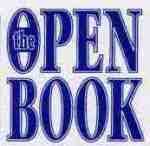 Through May 29, the Richmond Public Library is hosting a terrific exhibit highlighting the lasting value of children's books. Kelly Kyle, former owner of Narnia Books for Children and longtime library volunteer, asked Richmonders to share memories about some of their favorite books. Mrs. Kyle added historical context and visual displays from the library's collection of rare children's books. The resulting display is entertaining and informative.
Through May 29, the Richmond Public Library is hosting a terrific exhibit highlighting the lasting value of children's books. Kelly Kyle, former owner of Narnia Books for Children and longtime library volunteer, asked Richmonders to share memories about some of their favorite books. Mrs. Kyle added historical context and visual displays from the library's collection of rare children's books. The resulting display is entertaining and informative.
In conjunction with the exhibit, this Saturday, May 12, authors Gigi Amateau and Meg Medina will be speaking at 1:00 pm. You don't want to miss it!
I was honored to take part in this special event. My essay appears below. Come by Saturday and savor all the essays--Lucinda Whitehurst.
A Wrinkle in Time
is celebrating its 50th anniversary this year. Madeleine L’Engle’s groundbreaking novel may seem
almost quaint in today’s teenage literary world, replete with dystopian
landscapes and paranormal relationships.
For an almost-teen girl in the mid-1970s, however, A Wrinkle in Time was a revelation.
I have a nice family, kind, smart people known for their
community spirit and willingness to help others. As a child, I often wondered how I fit in. I did not want always to think of others
first. At times I felt selfish and
self-centered. Along came Meg Murray,
stubborn, impatient and angry. Her
mother was brilliant and beautiful but Meg could not keep her shirt tucked or
her hair tidy. She got in fights and
spoke angrily to adults who suggested that her father had abandoned the family. Meg was a heroine with whom I could
identify. She approached life with an
unhappy but honest attitude. I was
amazed.
The story’s subject matter fascinated me. Time travel books were and remain some of my
favorite literary choices. L’Engle
combines science and religion in her books in a way that simultaneously answers
and creates questions about the possibilities of our world. For me, L’Engle goes a long way in settling
debate when she explains that science changes our thinking about God, but does
not change God. Like Meg, we struggle
against our own limitations. When Meg
has flashes of comprehension she cannot quite articulate, I feel kinship, not
frustration. Her fight against the
Darkness/evil/It is like all of our struggles against the worst instincts of
ourselves and others.
Meg searches for her father, certain that finding him will
solve all of her problems. Again L’Engle
was revelatory to me. Dr. Murry is an
intelligent human but he is not omnipotent. I read the book at exactly the age
children begin to assert themselves outside of their parents’ influence. Meg showed me that feeling was okay, maybe
even necessary. I was not a horrible
child; I was learning to be an adult.
Meg does not succeed by being the prettiest, the smartest,
or the nicest. She accepts her faults,
she accepts herself, and finds the courage to succeed by being her best
self. Her stubbornness means she will
not give up on her brother; her impatience forces her to solve problems
herself; her anger gives her the strength to fight. She has the support of her family and her
friend Calvin, but she accepts that in the end she has to rely on herself.
Meg was a heroine who spoke to me. She was rude to a teacher (I would never!),
she got into fights (I would only think about that); she expressed doubts about
her parents (most kids do at some point); but in the end, she was one who saved
them all. Meg gave me hope for myself.
Lucinda Snyder Whitehurst

No comments:
Post a Comment